In my first month and a half on the job as president of the Washington Council on International Trade, I’ve had the opportunity to talk to a lot of folks about a) trade policy and b) the role of WCIT. On the former, the answers have been broad, as this list of WCIT policy priorities can attest – from the Affordable Footwear Act to Russian WTO Accession (if only there was a policy priority that started with Z so that I could have said “from the Affordable Footwear to the Zoo Import Case” or something…too bad).
But on the second question of our role, I’ve heard a lot of folks say that WCIT needs to be the counterpoint in the argument over “whether trade is good or bad.” But I totally disagree. “Is trade good or bad” is the absolute wrong question to be asking.
The thing about that question is that it’s not really a useful debate to be having. Trade is happening and going to continue happening, whether some of us like it or not; the global economy is too interconnected for us to assume that there’s a binary choice between trading and not trading. The largest markets for many of our state’s products are overseas, to say nothing of the vital importance of global supply chains to Washington’s leading industries.
The second piece is that almost everyone admits that – while trade has an huge positive impact on our state – there are some negative consequences to trade, particularly linked to the US economy’s shift from a nation that does all of its own low-cost manufacturing to one that imports a significant portion of its low-cost goods (and services). WCIT is not here to say that no one ever loses their job because of trade or that trade never makes it harder for certain businesses to be successful within their current business model.
So, it’s a given that there are many “good” things that happen because of trade and that some “bad” things happen. Which means that the answer to the above question is “both.” OK, now what are you going to do?
Here’s the question we actually need to be asking: “How can we maximize the positive impacts of trade for our economy, both nationally and specifically for Washington state?” And that’s really what WCIT’s role is. We work to ensure that policy decisions – whether they be trade agreements, pieces of legislation or appropriations – are as beneficial as possible for our businesses and citizens, that they taken into account our needs and opportunities, and that they’re grounded in facts and data.
Part of the reason why this change in question is so vital is that it really alters the debate. Rather than a fight between “pro-trade” and “anti-trade” groups, it allows for a discussion between groups with differing views on how to maximize the positive impacts of trade. Which is less of a black-and-white, good vs. bad, right or wrong issue. It allows us to have reasoned debate on cost-benefit analysis, and find compromise that is mutually agreeable. It keeps one group from being put in a position to have to be against labor, environmental and human rights concerns, while helping the other group feel OK about agreeing that increased trade leads to increased economic opportunity.
How does this discussion get put into practice? It’s going to start with collaboration around specific trade issues that multiple stakeholders can agree on. I always like to bring up the example of port competitiveness – finding a way to keep our West Coast ports successful in the face of increasing competition from Canada and the widening of the Panama Canal – as a major policy discussion that I bet business and labor could work together on. And once we show that we can find common ground on trade, that that’s the start of a lot of other productive conversations.

